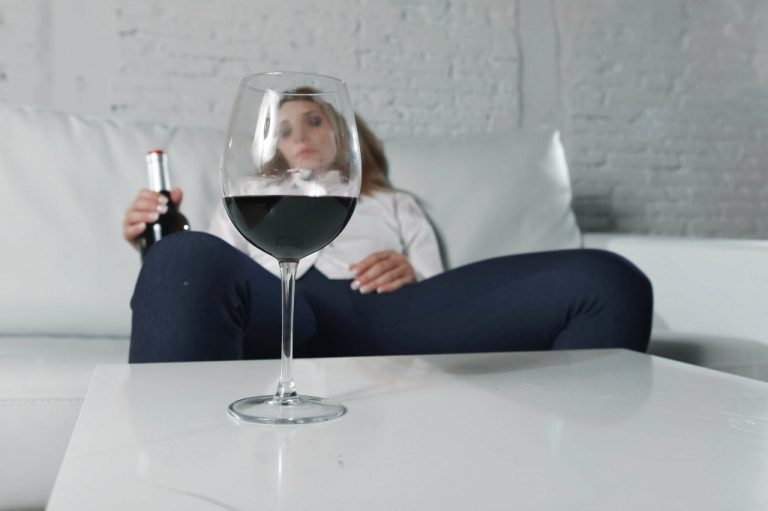It’s important to use these substances only as directed by your doctor and avoid mixing them with other drugs or alcohol. Consulting a healthcare provider is of utmost importance to ensure one’s safety and well-being. When you combine sleeping pills and alcohol, you’re at an increased risk of experiencing negative side effects. As we’ve already discussed, mixing these substances can lead to enhanced sedation and drowsiness, impaired coordination, respiratory depression, mood changes, and disrupted sleep patterns. Additionally, mixing sleeping pills and alcohol can also result in an increased risk of side effects.
How long does it take for the effects of mixing sleeping pills and alcohol to wear off?
Alcohol may prevent the medication from being absorbed correctly, reducing its efficacy and prolonging your recovery. Ideally, it is always best to take emergency contraception without consuming alcohol or waiting until you sober up. Alcohol does not have a direct interaction with emergency contraception pills, but it can impair your judgment and impact your ability to remember taking the medication correctly. Taking emergency contraception seriously and ensuring its efficacy is essential, so it’s better to err on the side of caution and take it when you’re sober. After a booze-fueled night, you may find yourself in dire need of a pain reliever.

Blood Thinners
- While the drug can quell your symptoms, if mixed with alcohol, it can result in extreme drowsiness or dizziness.
- Finally, combining sleeping pills and alcohol can lead to an increased risk of experiencing breathing problems.
- Also, set extra reminders for yourself, like on your phone or other device, to avoid forgetting to take your pill.
- Alcohol, like some medicines, can make you sleepy, drowsy, or lightheaded.
- That is because even though sleep aids help people sleep, they don’t necessarily help people get the deep, refreshing sleep the body needs.
Extreme drowsiness can increase the chances of an injury or accident, and “lead to serious problems with thinking, judgment, and motor skills,” she warns. Fortunately, some of the newer antihistamines like Zyrtec, Allegra Allergy, and Claritin are less likely to cause drowsiness than first-generation meds like Benadryl and Dramamine. If you become sick from drinking and vomit within two hours of taking your pill, your body might not absorb the pill.

Older people face greater risk
Potential side effects include gas, bloating, stomach pain and nausea, according to the U.S. For example, if you take antibiotics early in the morning, it doesn’t mean it’s safe to drink a glass of wine before bedtime. Ingesting magnesium citrate and alcohol, for instance, is never a good idea 35. This combo can wreak havoc on your stomach, causing diarrhea, tummy pain, nausea and bloating.
In some cases, a person may need to take medications to help them detox from the substances. These medications can help reduce the risk of severe symptoms and can make the detox process easier. It is important to note that these medications should only be taken under the supervision of a medical professional. While these prescription medications all aid with sleep, other sleep aids may be purchased over the counter. The most common over-the-counter sleep aids include melatonin and medications containing diphenhydramine, which is the active ingredient in Benadryl. Whether you are struggling with addiction, mental health or both, our expert team is here to guide you every step of the way.
The Science of Potentiation: CNS & Respiratory Depression Explained
- If you have a nagging cough, you’ll likely reach for an over-the-counter expectorant.
- When used in conjunction with a healthy diet and exercise, phentermine can aid in weight loss efforts.
- Both sleeping pills and alcohol are highly addictive substances on their own.
- Some over-the-counter medicines that you shouldn’t combine with alcohol include medicines for sleeping, travel sickness, cold and flu, allergy, and pain.
To be on the safe side, always consult your healthcare provider before consuming alcohol while on medication. Blood thinners are known to have this effect, so it is advisable to avoid drinking alcohol if taking these kinds of drugs. Experts consider disulfiram safe and effective for both short-term and long-term treatment of people who want to stop drinking. Skipping a dose could allow you to get drunk and jeopardize your recovery. However, phentermine can also cause more serious adverse health outcomes, including changes to the normal heart rhythm.
When mixing prescription medication with alcohol, there are Twelve-step program certain dangers to consider. If you’re tempted to test your MAT and slide back into drinking, talk to your medical team. You need more help to avoid a relapse, and your treatment team can help. Although it is best to avoid alcohol when taking phentermine altogether, there may be a rare occasion when you can accept a drink. This is because alcohol irritates the lining of the stomach and digestive tract.
Can You Take Medication After Drinking Alcohol?
They can also interact with other medications, so it’s important to talk to your doctor before taking them. Non-benzodiazepine hypnotics, also known as Z-drugs, are a newer class of sleeping pills that work by binding to specific receptors in the brain that help to promote sleep. Some examples include zolpidem (Ambien), eszopiclone (Lunesta), and zaleplon (Sonata).
In some cases, it could worsen your depression or lead to thoughts of suicide. One way of doing this is to try and balance your alcoholic drinks with soft drinks, such as water or squash. Methods like the implant, IUDs, and the contraceptive injection don’t need to be topped up so often, and might be more suitable for your needs.
If your medicine has similar side-effects as being drunk, those what happens when you take pills and drink alcohol effects can be compounded. Alcohol acts as a depressant on the central nervous system, while sleeping pills are also depressants. When taken together, they can cause a dangerous build-up of sedation.

